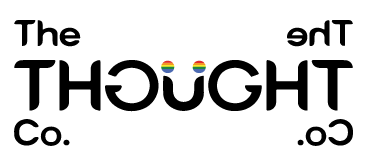We’ve all been on social media long enough to know that restaurants with a bunch of influencers promoting it only have their 5 star ratings because of their pastel colours and fancy cutlery. Food? I could make that pasta at home. Likewise, products flaunted by fancy fashion influencers apparently only work wonders on their skin, not ours. And let me not even begin with the new clothing brands on Instagram, they always leave me overwhelmed. Yes, I want it but will it really look as good on me as it looks on that ‘one’ influencer who also seems appealing in dresses made of dustbin bags?
Of course, at the end of the day, it’s our agency as consumers to choose what we buy, throw or write a really bad review for. But where do we draw the line? I’ve seen influencers sell or give their own advice about diets, exercises, skincare, relationships, and even mental health. And as much as information for these problems is a must, does all this unregulated information actually end up helping people? Is it worth putting your hands on an aesthetic journal an influencer with 500k followers created because they dealt with their anxiety using the techniques they’ve added in the book
Just because someone has had a certain experience, done their research on, or dealt with certain circumstances in life does not make them an expert. Why so? Because actual experts, like dermatologists, psychologists, dieticians, and doctors have studied these issues for years and know different types of concerns and effective solutions before they even start practising.
The one thing any expert (in any field) will tell you is that people have different experiences, and will need different solutions for each of them - not everyone will benefit from putting onion oil in their hair like that one person on Instagram who said it did wonders (and no, she was not a dermat)!
And here’s the other part of it, when you see influencers selling things, and it’s apparently working for everyone (yes, that’s marketing), you feel bad and guilty about yourself. You might even give up on finding a solution to the problem, because well, since ‘every other follower is benefiting from it, but it’s not working for me, so something must be wrong with me, right?’ Well, actually no. dangers of health advice from influencers
As a psychologist, I can tell you that there are loads of ways of coping with anxiety. Not everyone likes journaling, meditation or affirmations. It's 100% okay if these don’t help you. A professional will help you configure that coping mechanism, taking your history, hobbies, and preferences into account - which people with only one isolated experience can’t do for you
Health problems - from acne to gut problems - need to be addressed from a space of expertise instead of experience. The importance of this keeps getting magnified with each influencer who thinks health and wellness is a good place to capitalise on (PS: some countries, like China, are taking steps to curb this unregulated information problem as well).
So the bottom line here is, take a pause before you get influenced by the influencers (I know that’s their job, but still). Spending time with something is very different from actually gaining knowledge about it. Just because you recovered from dengue once doesn’t make you a physician, and just because you dealt with your self-esteem doesn’t make you a psychologist.
Check degrees, knowledge and specialisations and only then jump to get their recommended products or try that life hack that made them lose 10 kgs in 5 months (which is probably just the start of an eating disorder, by the way). They only know as much as you do, really, and as sad as it may sound to not have as many resources as we did before, it’s also freeing - to know you don’t have to be influenced by everything they do.
dangers of health advice from influencers




